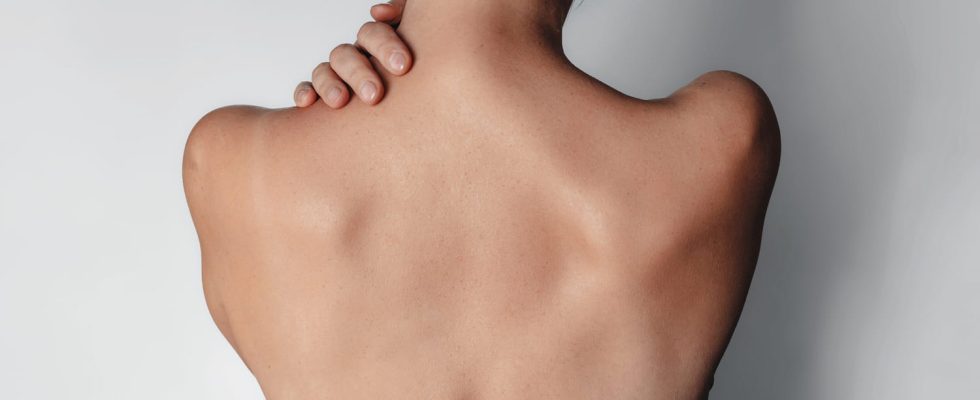Cloves syndrome is a rare genetic disease that manifests itself by significant deformations of certain parts of the body. It has long been called “Elephant Man’s disease”.
Definition: what is Cloves syndrome?
Cloves syndrome is a rare genetic disease affecting children from the youngest age. Acronym “CLOVES” means “Congenital Lipomatous Overgrowth” (excessive growth of fatty tissue), “Vascular malformations” (vascular malformations), “Epidermal nevi” (epidermal nevi), and “Spinal/Skeletal abnormalities” (abnormalities of the spine and skeleton). It has long been called elephant man disease, degrading name which is no longer used today.
What are the symptoms of Cloves syndrome?
The manifestations of the disease occur from birth And evolve during life, especially during childhood, in the period of growth.
► The overgrowth of certain parts of the body (big finger isolated) and/or growths of fatty tissue (we speak of lipomatous growths). For example, one arm bigger than the other.
► vascular malformations : these are abnormalities of the blood and/or lymphatic vessels which can cause circulation problems, for example.
► spots or skin lesions : they can sometimes itch.
► skeletal abnormalities : enlargement of the bones, deformation of the bones and in particular of the spine. For example, patients with Cloves syndrome may suffer from scoliosis.
These symptoms are frequently associated with chronic pain.
What are the causes of Cloves syndrome?
The exact cause of CLOVES syndrome is unknown, but it is usually linked to genetic mutations. A mutation of the PIK3CA gene has been identified in most patients with this syndrome. This is the same mutation implicated in the Klippel-Trenaunay syndrome.
What is the impact on life expectancy?
The consequences of Cloves syndrome can be very variable depending on the location of the hypertrophic areas and their extent. The disease causes pain, inflammation, sometimes bleeding, phlebitis, functional disability… The vital prognosis for patients can be committed in the short or medium term depending on the seriousness symptoms (deformations of organs such as the brain or the kidneys, etc.).
What are the treatments ?
Support consists mainly of prevent and treat complications. Depending on the case, it is:
- medical management of inflammatory or painful flare-ups
- medical management of thromboembolic complications
- management of superficial hemorrhagic complications of angiokeratomas
- a correction of an inequality in the length of the lower limbs
- treatment for scoliosis
- support by compression of vascular malformations of the limbs
- reduction surgery in case of segmental hypertrophy or lipomatous masses
- cutaneous laser treatment in the event of aesthetically troublesome or disabling superficial vascular malformations
- physical rehabilitation in case of functional limitation related to hypertrophy or the consequences of surgery
Research is underway to develop a treatment that would target the mutated gene. Since the spring of 2022, a treatment has been marketed in the United States. It was developed by the Pr Guillaume Canaud, nephrologist at Necker-Enfants Malades Hospital AP-HP. This is an inhibitor called BYL719originally studied in oncology.

It is not yet marketed in France. Currently, no drug has marketing authorization (AMM) against Cloves syndrome.
- Cloves Syndrome, Oprha.net
- Medical first: CLOVES syndrome and hypergrowth syndromes: remarkable improvement in the state of health of 19 child and adult patients thanks to a new therapeutic strategy, AP-HP
- Hypertrophic syndromes linked to the PIK3CA (PROS) gene without cerebral involvement CLOVES and Klippel-Trenaunay syndromes, HAS
